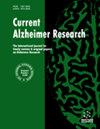Temporal speech parameters detect mild cognitive impairment in different languages: validation and comparison of the Speech-GAP Test® in English and Hungarian.
IF 1.9
4区 医学
Q3 CLINICAL NEUROLOGY
引用次数: 1
Abstract
BACKGROUND The development of automatic speech recognition (ASR) technology allows the analysis of temporal (time-based) speech parameters characteristic of mild cognitive impairment (MCI). However, no information has been available on whether the analysis of spontaneous speech can be used with the same efficiency in different language environments. OBJECTIVE The main goal of this international pilot study is to address the question whether the Speech-Gap Test® (S-GAP Test®), previously tested in the Hungarian language, is appropriate for and applicable to the recognition of MCI in other languages such as English. METHOD After an initial screening of 88 individuals, English-speaking (n = 33) and Hungarian-speaking (n = 33) participants were classified as having MCI or as healthy controls (HC) based on Petersen's criteria. Speech of each participant was recorded via a spontaneous speech task. 15 temporal parameters were determined and calculated by means of ASR. RESULTS Seven temporal parameters in the English-speaking sample and 5 in the Hungarian-speaking sample showed significant differences between the MCI and the HC group. Receiver operating characteristics (ROC) analysis clearly distinguished the English-speaking MCI cases from the HC group based on speech tempo and articulation tempo with 100% sensitivity, and on three more temporal parameters with high sensitivity (85.7%). In the Hungarian-speaking sample, the ROC analysis showed similar sensitivity rates (92.3%). CONCLUSION The results of this study in different native-speaking populations suggest that changes in acoustic parameters detected by the S-GAP Test® might be present across different languages.时间言语参数检测不同语言的轻度认知障碍:英语和匈牙利语speech - gap测试®的验证和比较。
背景自动语音识别(ASR)技术的发展允许分析轻度认知障碍(MCI)的时间(基于时间)语音参数特征。然而,关于自发语音的分析是否可以在不同的语言环境中以相同的效率使用,目前还没有可用的信息。目标这项国际试点研究的主要目标是解决先前在匈牙利语中测试的语音间隙测试®(S-Gap测试®)是否适合并适用于在英语等其他语言中识别MCI的问题。方法在对88名受试者进行初步筛选后,根据Petersen标准,将说英语(n=33)和说匈牙利语(n=33)的受试者分为MCI或健康对照组(HC)。每个参与者的演讲都是通过自发的演讲任务记录下来的。利用ASR方法确定并计算了15个时间参数。结果MCI组和HC组在英语样本和匈牙利语样本中的时间参数均存在显著差异。受试者操作特征(ROC)分析基于100%灵敏度的语音节奏和发音节奏,以及另外三个高灵敏度(85.7%)的时间参数,清楚地区分了英语MCI病例和HC组。在匈牙利语样本中,ROC分析显示相似的敏感率(92.3%)。结论这项研究在不同母语人群中的结果表明,S-GAP测试®检测到的声学参数的变化可能存在于不同的语言中。
本文章由计算机程序翻译,如有差异,请以英文原文为准。
求助全文
约1分钟内获得全文
求助全文
来源期刊

Current Alzheimer research
医学-神经科学
CiteScore
4.00
自引率
4.80%
发文量
64
审稿时长
4-8 weeks
期刊介绍:
Current Alzheimer Research publishes peer-reviewed frontier review, research, drug clinical trial studies and letter articles on all areas of Alzheimer’s disease. This multidisciplinary journal will help in understanding the neurobiology, genetics, pathogenesis, and treatment strategies of Alzheimer’s disease. The journal publishes objective reviews written by experts and leaders actively engaged in research using cellular, molecular, and animal models. The journal also covers original articles on recent research in fast emerging areas of molecular diagnostics, brain imaging, drug development and discovery, and clinical aspects of Alzheimer’s disease. Manuscripts are encouraged that relate to the synergistic mechanism of Alzheimer''s disease with other dementia and neurodegenerative disorders. Book reviews, meeting reports and letters-to-the-editor are also published. The journal is essential reading for researchers, educators and physicians with interest in age-related dementia and Alzheimer’s disease. Current Alzheimer Research provides a comprehensive ''bird''s-eye view'' of the current state of Alzheimer''s research for neuroscientists, clinicians, health science planners, granting, caregivers and families of this devastating disease.
 求助内容:
求助内容: 应助结果提醒方式:
应助结果提醒方式:


